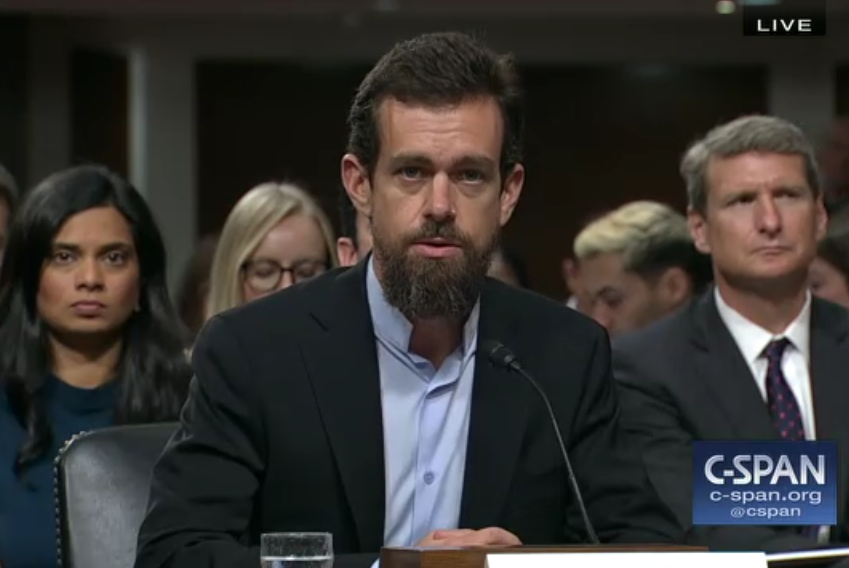Twitter's Dorsey: We Will Try to Label Bot-Driven Communications

The smarter way to stay on top of broadcasting and cable industry. Sign up below
You are now subscribed
Your newsletter sign-up was successful
Twitter CEO Jack Dorsey said Wednesday that Twitter plans to start notifying a user, when possible, whether they are interacting with a human or a bot.
That came in a hearing in the Senate Intelligence Committee.
He was asked by vice chairman Sen. Mark Warner (D-Va.) whether users should have a right to know whether they were interacting with a human or a bot, Dorsey said yes, that users have the right to more context to the extent that Twitter can identify bots from humans.
Dorsey said the company had been considering that recently and concluded it would be useful information for their users and that Twitter "was going to do something along those lines."
Related: Warner on Social Media Giants: Congress Needs to Take Action
Warner told Dorsey he had been impressed with some of Twitter's recent efforts to change its culture on safety and security.
Dorsey told the panel that he was proud of Twitter as a public square--he added that his mom was proud, too--but said what he was not proud of was its weaponization by bad actors. He said propaganda, bots, misinformation, and filter bubbles were not a healthy public square.
The smarter way to stay on top of broadcasting and cable industry. Sign up below
Dorsey acknowledged the "real world" negative consequences of providing its public forum, which has boosted the accessibility and velocity of information, and said Twitter took full responsibility for fixing it, which was the only way his company would thrive going forward.
But he also said they were thinking bigger, asking what Twitter is incentivizing people to do or not to do, and why. He said the answers will lead to "tectonic shifts" in his company.
Sen. Jack Reed (D-R.I.) also asked about labeling bots.
Dorsey said Twitter could identify automated programs and could label those with "context," but that it was not as easy to identify people "scripting" the site to make it look as though they are humans.
He said Twitter needs to make sure that people don't assume that if it is not labeled it a bot, it is definitely not.
But he said at least some labeling is now simply a case of implementation.
In wrapping up the hearing, Warner made the point that labeling bots did not necessarily mean identifying them as bad, but simply as a data point, since bots can be both good and bad.
Contributing editor John Eggerton has been an editor and/or writer on media regulation, legislation and policy for over four decades, including covering the FCC, FTC, Congress, the major media trade associations, and the federal courts. In addition to Multichannel News and Broadcasting + Cable, his work has appeared in Radio World, TV Technology, TV Fax, This Week in Consumer Electronics, Variety and the Encyclopedia Britannica.

